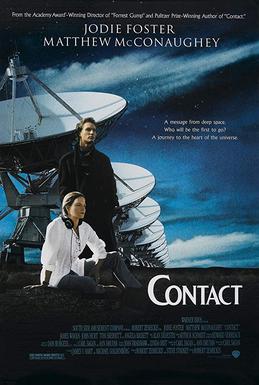
I recently watched (for the first time) the movie Contact, which may seem odd since it's almost 20 years old, and not the sort of movie that anyone describes as a classic. Still, it has its moments.
I did read the book back in the day. And this is one of those instances -- hardly unique -- in which my strongest impression coming away from the movie is about how much of the book they jettisoned. There will be something of a spoiler in what follows as I explain this, by the way.
Consider the whole childhood backstory. In the novel, the protagonist had found memories of her father and a terrible memory of his death when she was nine. So far so good, that's in the movie, too. But in the novel, the character's mother then married another man, and her teenage years were filled with tensions with the step-Dad.
Here's the threatened spoiler: Near the end of the novel, the step-Dad turns out to be her biological Dad. Mom conceived with him, then they split for a reason I've forgotten, then came Mom's encounter with the man that the protagonist came to think of as her Dad, then biological Dad comes back into picture after nurturing Dad has died. But he posed as her step-Dad, so to speak, out of respect for the bond she had had with nurturing Dad.
An unusual and inventive twist, totally lost in the movie. In this new context, there is only the one Dad, who died when the protagonist was 9. Her flashbacks don't include any mother, who is said to have died in childbirth. We're left uncertain about which relatives took her in after her single Dad's death.
It is a small subplot in a movie about Grand Themes such as human/alien contact. But I came away from the movie mourning the loss of that subplot.
Comments
Post a Comment